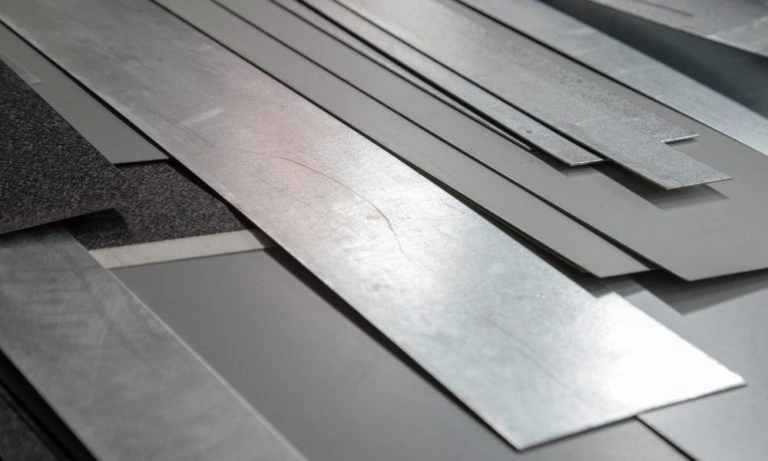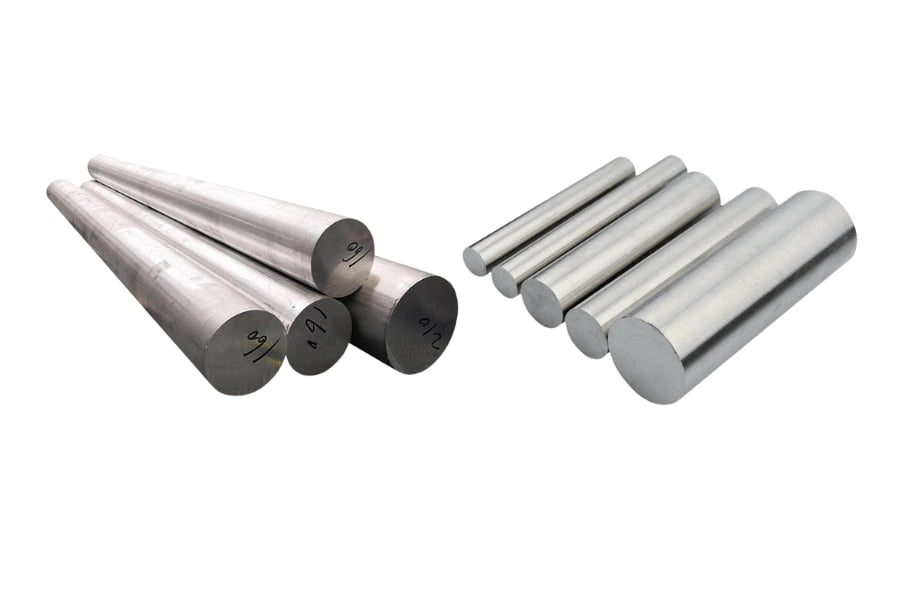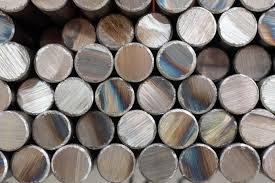Exploring the Intricacies and Benefits of CNC Precision Machining
Delve into the world of CNC precision machining, a sophisticated method employing CNC technology for crafting highly precise components. This guide covers the key components, processes, materials, benefits, and applications of CNC precision machining. Learn how this advanced technology enhances efficiency, accuracy, and versatility across various industries, including aerospace, automotive, medical, and electronics. Gain insights into cost factors, quality assurance, and future trends in CNC precision machining.
Understanding CNC Precision Machining
In the realm of manufacturing intricacy, CNC precision machining stands as a sophisticated methodology employing Computer Numerical Control (CNC) apparatus to craft exceedingly precise components. The commencement involves the generation of a digital prototype through the utilization of Computer-Aided Design (CAD) software, serving as a schematic for the eventual output. Subsequently, Computer-Aided Manufacturing (CAM) software transforms the prototype into meticulous directives for the CNC device, facilitating automated and precise manipulation of materials spanning metals, plastics, composites, and wood.
The adaptability inherent in this method renders it the favored selection across sectors such as aerospace, automotive, medical, and electronics. CNC precision machining distinguishes itself in attaining stringent tolerances, guaranteeing uniform and precise specifications for components. Its inherent mechanization permits replicable procedures, mitigating inaccuracies and augmenting efficiency, thereby contributing to cost-effectiveness in the realm of production.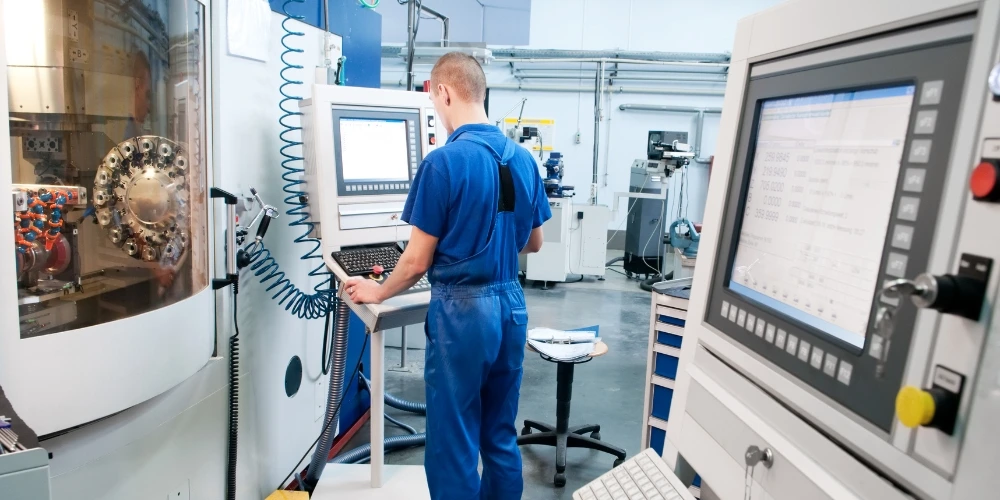
Pioneering contemporary manufacturing, CNC precision machining amalgamates technological ingenuity, material versatility, and unparalleled precision. Its extensive application persists in molding sectors that prioritize precision and intricacy in the fashioning of components, propelling progressions in both product design and engineering.
Key Components of CNC Precision Machining
CNC (Computer Numerical Control) precision machining involves the use of computerized systems to control machining tools and equipment for producing precision parts and components. The key components of CNC precision machining include:
CNC Milling Machines:
CNC milling operates with a stationary workpiece and moving cutting tools. The cutting tools, mounted on the spindle, move along multiple axes, rotate, and remove material from the fixed workpiece, controlled by computer numerical control (CNC) programs. CNC milling machines excel at machining complex components with precise geometries, creating flat surfaces, and intricate 3D shapes. Widely used for prototyping, they offer quick and accurate production for small batches. Ideal for molds and dies, they meet high precision demands and efficiently handle drilling holes and intricate internal features in various manufacturing processes.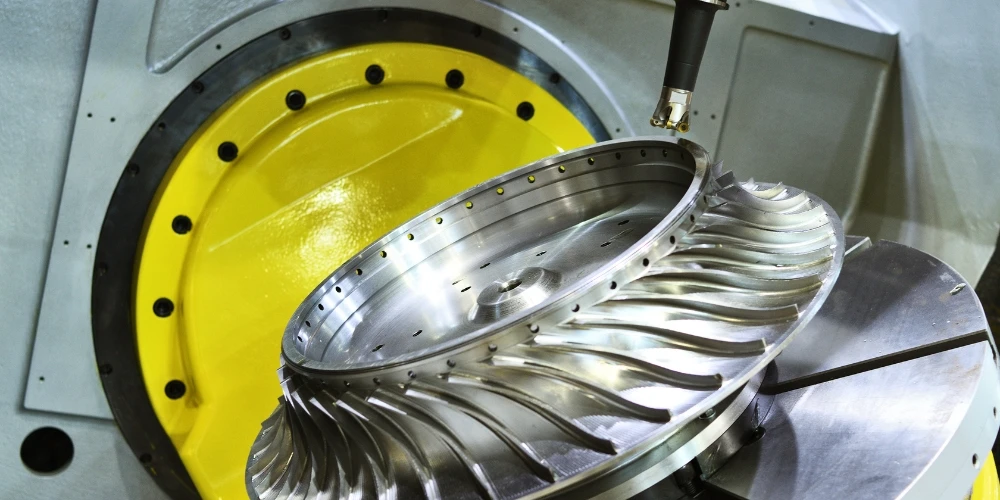
CNC Turning Machines:
In the realm of precision craftsmanship, CNC turning orchestrates the rotation of a workpiece on a spindle. Concurrently, a cutting tool intricately sculpts the material to manifest a desired form. Its defining features encompass heightened precision, operational efficiency, and the capability to craft cylindrical components. CNC turning proves adept in the machining of parts boasting rotational symmetry, such as shafts, bolts, and bushings. It excels in the creation of components adorned with grooves, threads, and intricate contours.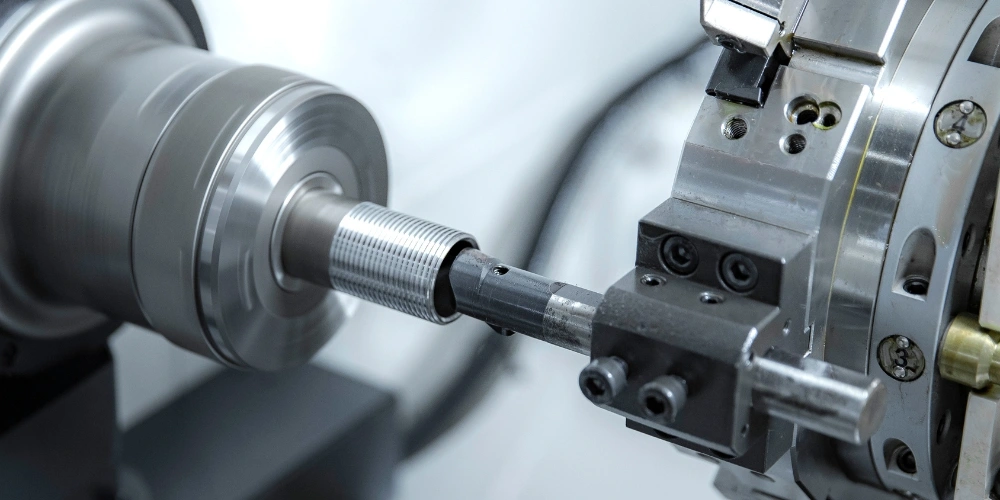
3D Printing Machines:
3D printing, synonymous with additive manufacturing, engages in the meticulous layer-by-layer fabrication of objects, affording latitude for intricate designs and bespoke tailoring. Its forte lies in the artistry of rapid prototyping, the orchestration of complex internal structures, and the judicious minimization of material wastage. Apt for the genesis of prototypes, bespoke medical implants, aerospace intricacies, dental contrivances, and elaborate fashion accouterments, this process exhibits remarkable versatility, facilitating the production of unparalleled and bespoke components spanning a multitude of industries.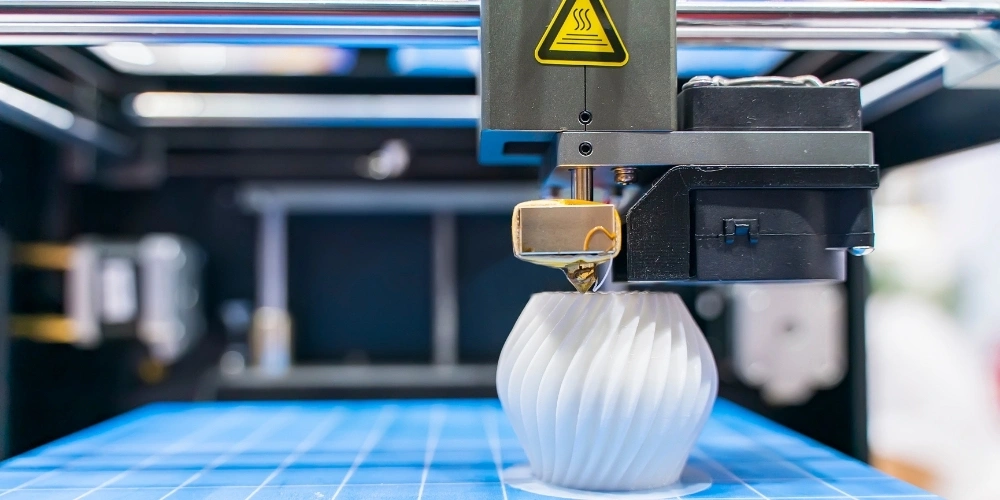
Laser Cutting Machines:
Laser cutting machines utilize a focused laser beam to cut through materials with precision. Operating on a computer-controlled system, these machines are adept at creating intricate patterns, sharp edges, and complex geometries. They excel in cutting a variety of materials, including metals, plastics, and wood. Laser cutting is ideal for producing detailed components, signage, and custom parts, offering high precision and speed. Common applications include fabricating prototypes, intricate artwork, and precision components for industries like electronics and aerospace.
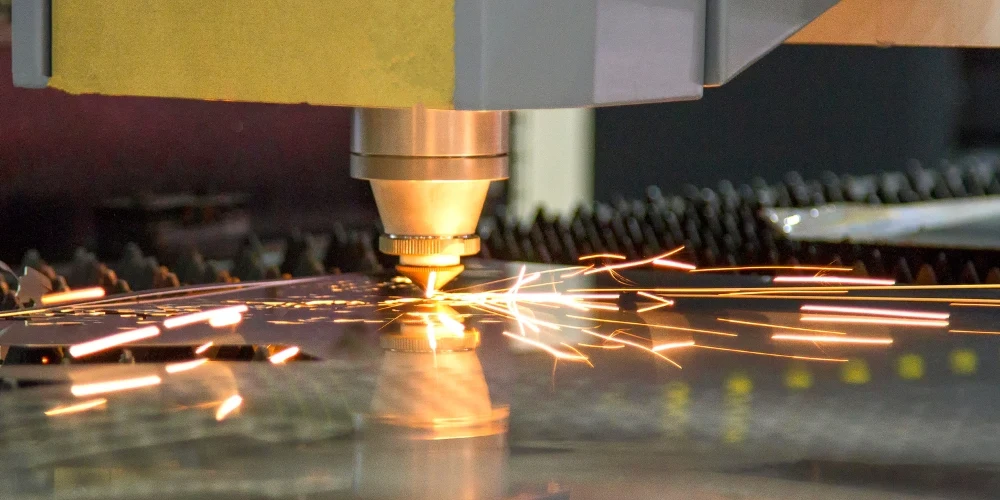
EDM Machines:
EDM, or Electrical Discharge Machining, employs electrical discharges to intricately shape components, especially in aerospace and medical industries. Well-suited for hardened tool steel, titanium, and exotic alloys, EDM is extensively utilized in crafting injection molds, dies, and precision components with intricate details. Noteworthy attributes encompass superior surface finishes and sustained precision in complex features, establishing its indispensability in specialized component fabrication.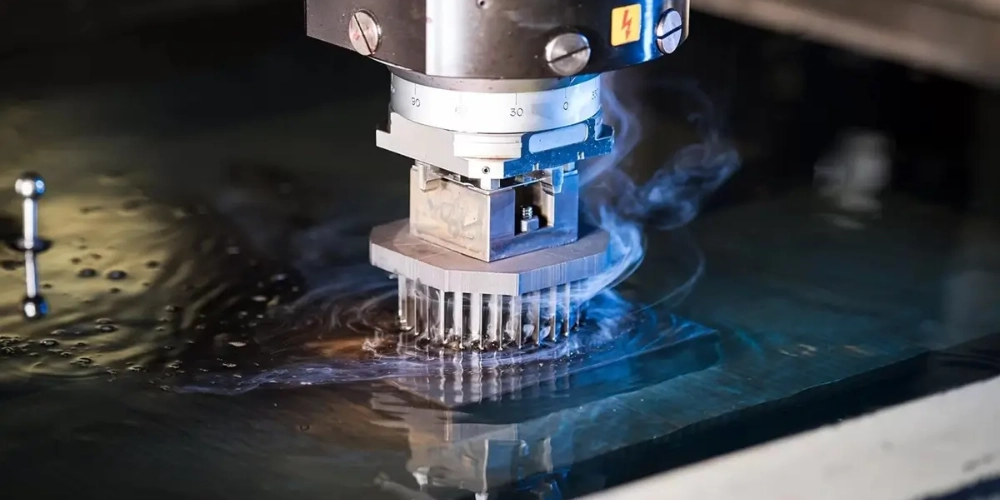
The Processes of CNC Precision Machining
CNC precision machining orchestrates a sequence of intricately interwoven processes:
- Design and Programming: Formulate an intricate design and transmute it into CNC directives.
- Material Selection and Preparation: Discern apt materials and ready them for the machining endeavor.
- Tool Curation: Discriminate suitable cutting implements based on specific requisites.
- Fixturing and Workholding: Staunchly affix the workpiece to ensure steadfastness throughout the machining operation.
- CNC Machining Operations: Execute an array of operations encompassing milling, turning, drilling, and grinding.
- Quality Scrutiny and Inspection: Ascertain precision and steadfast adherence to exacting quality benchmarks.
- Post-Processing: Implement supplemental treatments such as thermal processing or surface enhancement.
- Assembly (if pertinent): Integrate constituent parts judiciously as dictated by the project’s requisites.
- Final Scrutiny and Testing: Validate that components meet stipulated specifications through rigorous functional evaluations.
- Packaging and Dispatch: Meticulously encapsulate finalized components in preparation for dispatch.
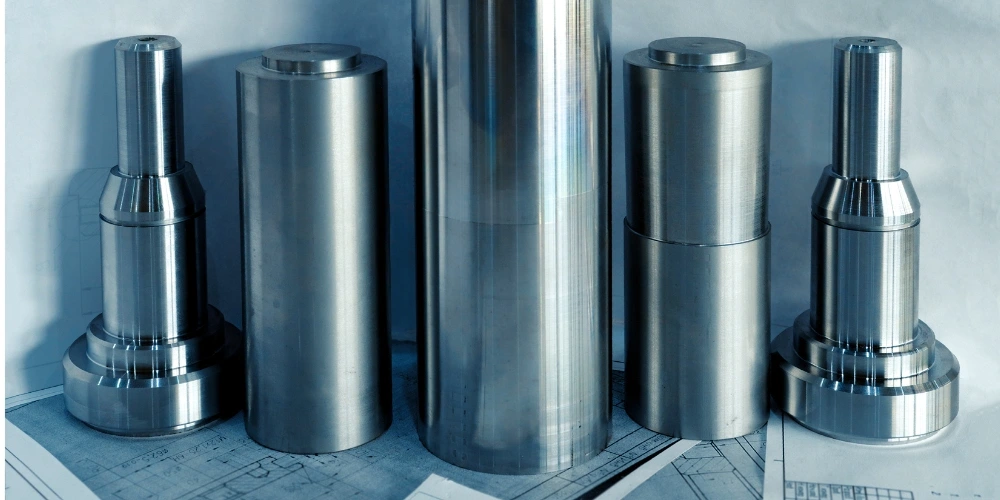
The amalgamation of technology, intricate programming, and adroit execution coalesces in CNC precision machining, yielding superlative components for an array of industries.
Benefits of CNC Precision Machining Service
CNC precision machining services play a pivotal role in contemporary manufacturing, providing an array of advantages, including exceptional accuracy, adaptability with a variety of materials, and expertise in shaping intricate forms. The automated essence of CNC machining ensures streamlined efficiency, minimizes production timelines, and fosters uniformity in extensive manufacturing operations. Particularly economical for prototyping, these services curtail wastage through automated controls, offering facile customization. CNC machining’s scalability for diverse project dimensions enhances occupational safety through automation and integrates sophisticated quality assurance systems. With its extensive relevance across industries and ongoing innovation, CNC precision machining significantly elevates productivity and the capacity to adapt to evolving design requirements.
Applications of CNC Precision Machining
- Aerospace
- Automotive
- Medical
- Electronics
- Tool and die-making
- Energy
- Prototyping
- General Manufacturing
- Defense
- Jewelry
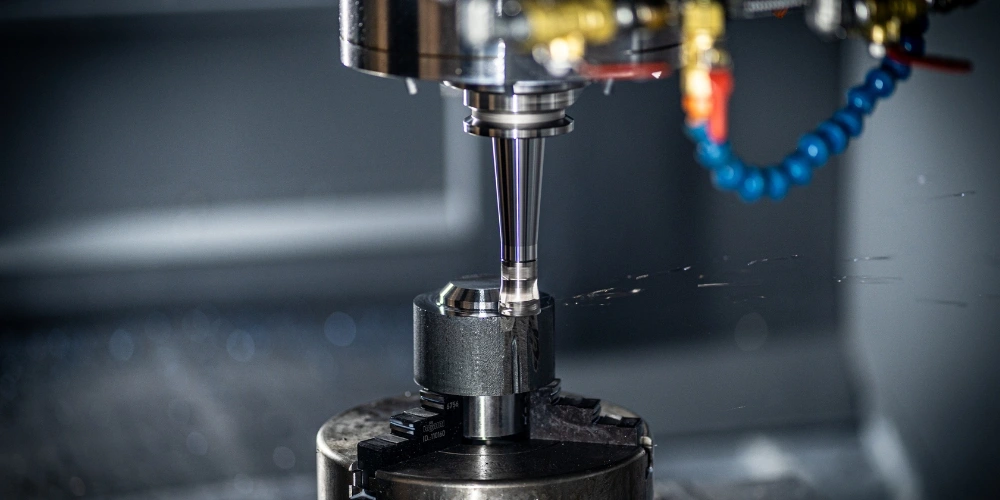 CNC Precision Machinings’ adaptability to various materials and its capability to shape complex designs make it a versatile and essential solution for precision manufacturing needs.
CNC Precision Machinings’ adaptability to various materials and its capability to shape complex designs make it a versatile and essential solution for precision manufacturing needs. Materials Used in CNC Precision Machining
CNC precision machining exploits a multitude of materials, encompassing not only conventional metals like aluminum, stainless steel, brass, and titanium but also extending its embrace to include plastics, composites, and a myriad of diverse alloys. This underscores its inherent adaptability, traversing an intricate spectrum of material classifications. Such profound versatility uniquely situates CNC precision machining to navigate the nuanced and specific demands inherent in a diverse range of industries, spanning from the intricacies of aerospace to the intricacies of electronic realms and beyond.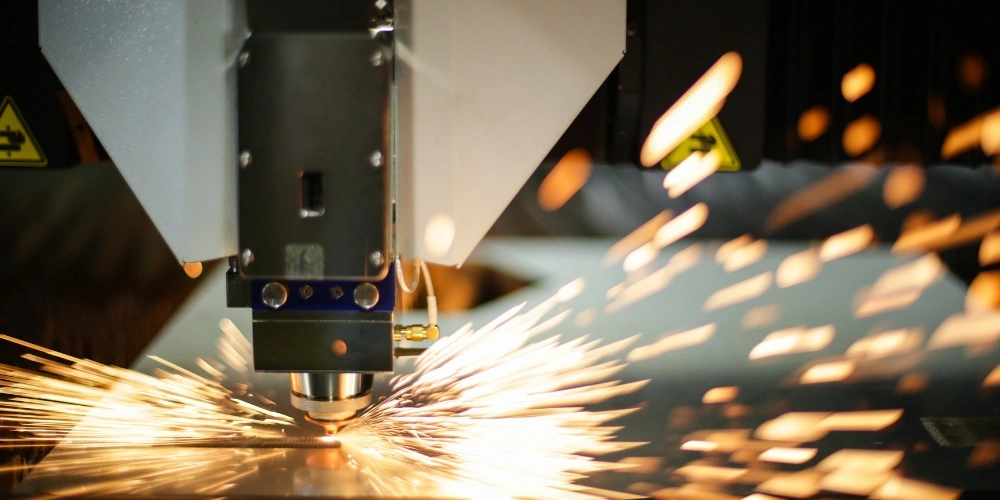
Factors Impact Costs in CNC Precision Machining
- Material Selection: Diverse materials command disparate costs, particularly high-performance or specialized alloys incurring elevated expenses.
- Design Intricacy: Enhanced intricacies or distinct machining methodologies amplify machining duration and overall expenditures.
- Tolerance Prerequisites: Stringent tolerances necessitate heightened precision, impacting intricacy and outlays.
- Batch Magnitude: Economies of scale come into play, with expanded production sequences enjoying diminished per-unit costs.
- Machining Duration: Prolonged machining durations, especially for intricate designs, contribute to escalated costs.
- Tooling and Configuration: Initial setup and tooling charges fluctuate, particularly with intricate designs necessitating specialized tooling.
- Machine Proficiency: Precision-centric machines with sophisticated attributes may command augmented hourly rates.
- Finalization Prerequisites: Added finalization processes, such as coating or polishing, append to the ultimate cost.
- Quality Criteria: Rigorous benchmarks might mandate supplementary quality control measures, affecting costs.
- Completion Time: Exigency could culminate in hastened services, impacting costs due to supplementary resources and overtime.
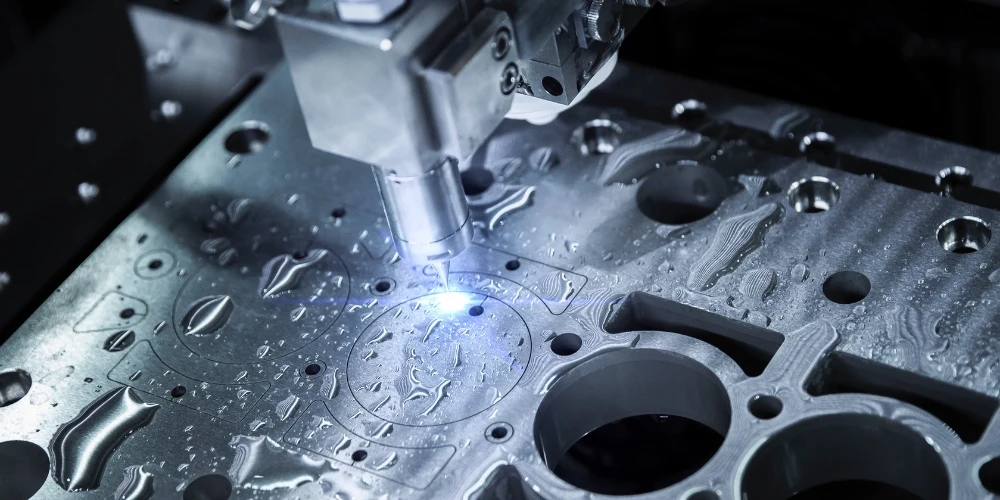 Grasping these elements facilitates the refinement of CNC precision machining costs according to the unique necessities of each project.
Grasping these elements facilitates the refinement of CNC precision machining costs according to the unique necessities of each project. Choose a Suitable CNC Precision Machining Service
Choosing the right CNC Precision Machining Service:
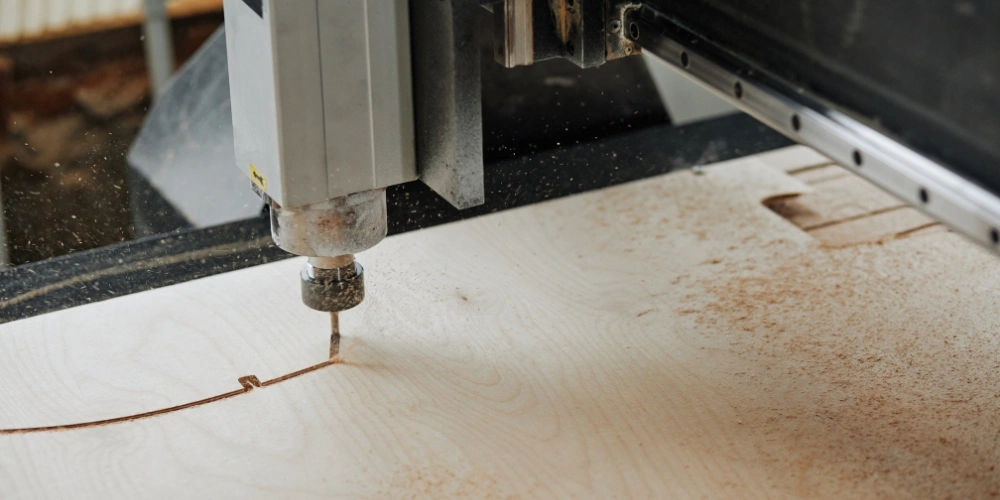
- Expertise: Evaluate their industry experience and project proficiency.
- Facilities: Ensure they possess cutting-edge technology for your specific needs.
- Material Compatibility: Confirm their ability to work with diverse materials relevant to your project.
- Quality Commitment: Assess dedication to strict quality control, industry standards, and certifications.
- Customization: Look for flexibility in tailoring processes to your project’s unique requirements.
- Cost-Effectiveness: Compare pricing structures for a balance between cost and quality.
- Turnaround Time: Consider the expected completion time aligned with your schedule.
- Reviews and Reputation: Research customer feedback and their standing in the industry.
- Communication: Choose a service with transparent and open communication.
- Prototyping and Testing: Ensure they offer prototyping and testing if essential.
Quality Assurance and Inspection in CNC Precision Machining
- Dimensional Precision Scrutiny: Ensuring an unequivocal guarantee of exact measurements.
- Surface Finish Inspection: Traversing the path of refining appearances to an exquisite degree.
- Material Verification: Engaging in a pursuit that underscores unwavering adherence to prescribed specifications.
- Tolerance Harmonization: Becoming the fulcrum orchestrating seamless integration.
- Imperfection Unraveling: Meticulously conducting visual discernment to reveal the fabric of imperfections.
- Functional Evaluations: Immersing components in simulated conditions for comprehensive testing.
- Documentation Scrutiny: Navigating the voyage towards precision and comprehensiveness.
- Industry Standards Adherence: Following the tenets of industry standards as an unequivocal guide.
- Regular Tool Examinations: Tethered with periodic inspections ensuring optimal tool performance.
- Final Evaluation Preceding Delivery: Culminating in a harmonious symphony to ensure elevated quality benchmarks and utmost client gratification.
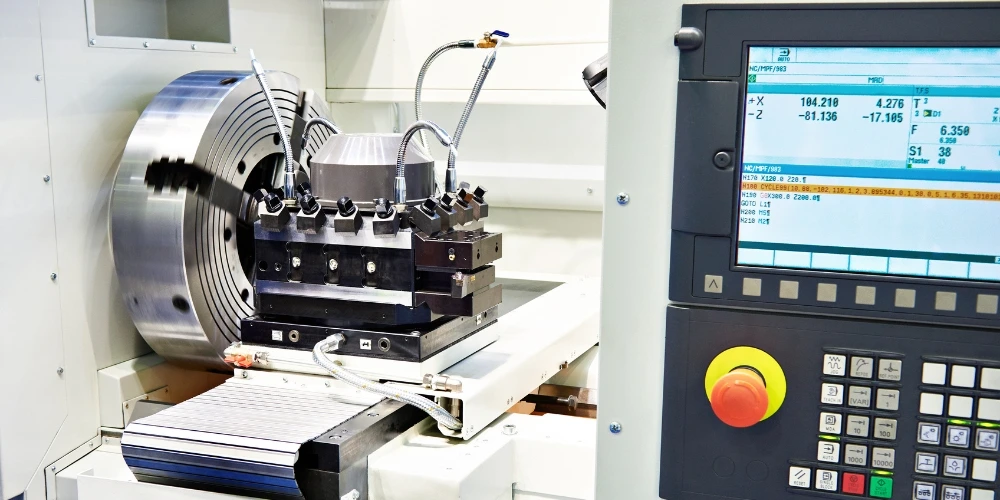
Advantages Come With Outsourcing CNC Precision Machining
Outsourcing CNC Precision Machining unfolds an array of benefits, encompassing fiscal efficiency through diminished labor expenditures, access to niche expertise, and the capacity to concentrate on fundamental proficiencies. It grants entry to avant-garde technology devoid of substantial investments, extends adaptability in adjusting production scales in response to demand fluctuations, and curtails lead times. Furthermore, externalizing operations assuages hazards, fosters expansive global market penetration, guarantees quality via entrenched controls, and stimulates ingenuity through exposure to diverse methodologies.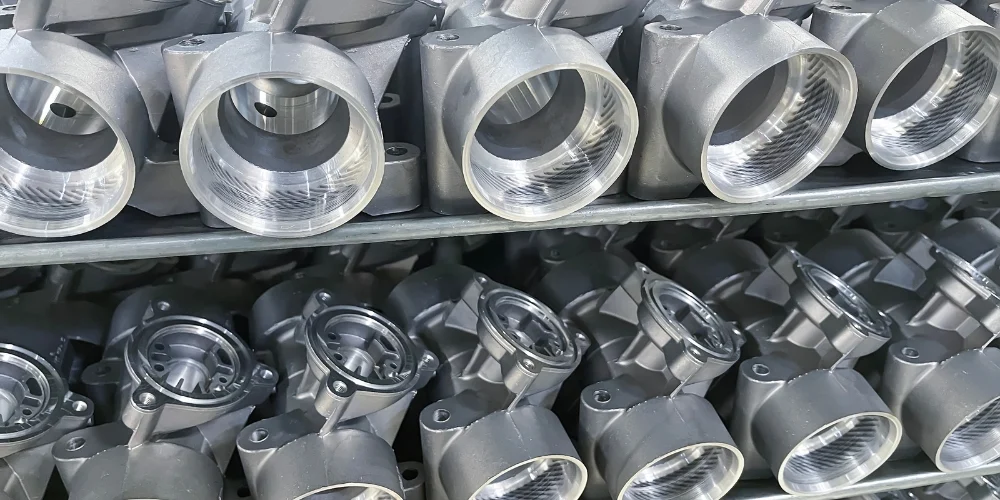
Future Trends in CNC Precision Machining
Prospective trends in the domain of CNC Precision Machining encompass a conspicuous amalgamation of Artificial Intelligence (AI) and progressive evolutions linked to Industry 4.0. The employment of AI is foreseen to augment the realm of automation, refine decision-making paradigms, and elevate the comprehensive efficiency of machining processes. The Industry 4.0 framework, distinguished by the seamless interconnection of intricate machineries and systems, is poised to metamorphose CNC Precision Machining. This transformative metamorphosis will be facilitated through insights derived from data, strategies of anticipatory maintenance, and continuous real-time monitoring, thereby cultivating an intricate and astute manufacturing landscape.
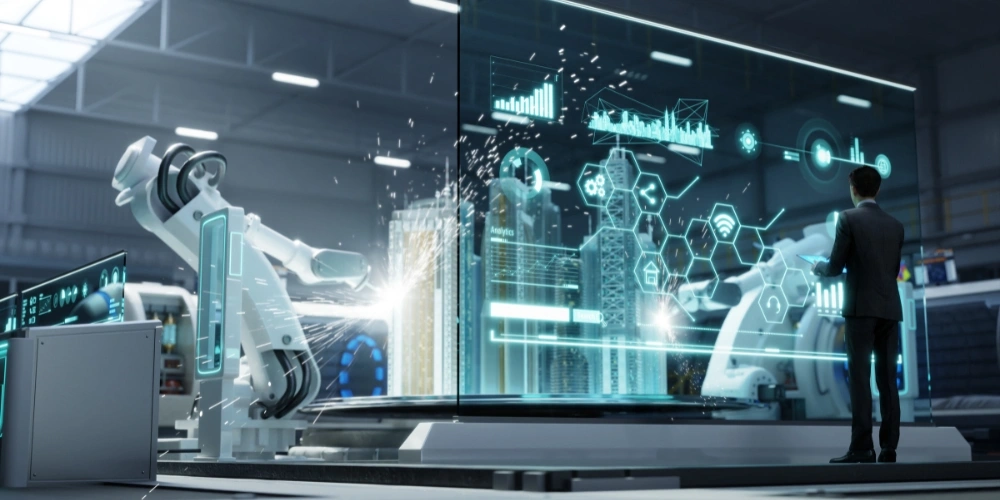
Guidance for Custom CNC Precision Machining Parts
- Define Clear Requirements: Provide the details of project definitions in terms f dimensions, materials and specials for it.
- Choose Experienced Manufacturers: Choose CNC precision machining experts.
- Evaluate Equipment: Be sure the company has access to modern CNC machines that they will use for your project.
- Material Selection: Consult with firsthand advice on materials.
- Prototyping and Testing: Ask for these services if any.
- Prioritize Quality: Concentrate on accuracy and quality instead of thinking about cost.
- Lead Times: Secure correlation between delivery schedules and your project timeline.
- Check References: The reputation of the brand can be measured from references and feedbacks.
Conclusion
Precision manufacturing is exemplified by CNC precision machining as it combines advanced technology with expertise. It provides outstanding precision, adaptability in terms of materials used and complex designs that are essential to several fields. Automation of the production process gives shorter lead times, maintains quality and secures scalability. CNC precision machining is still evolving industries, which need high accuracy and because of its wide fields of application and material applicability it cannot be excluded. Overall, it is characterized by adopting trends such as AI and Industry 4.0 that provide more efficiency and advanced approach of modernizing the future world of manufacturing.



